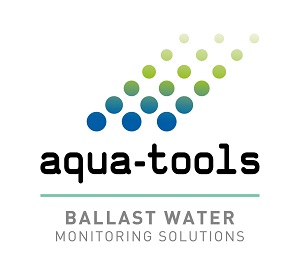AQUA-TOOLS TO PARTICIPATE IN NEW ISO STANDARD FOR BALLAST WATER SAMPLING AND ANALYSIS
Paris-based aqua-tools is to participate in the formulation of an international standard for ballast water sampling and analysis.
The company, which specialises in the biological monitoring of water quality for various applications, including ships’ ballast, will work with French standardisation organisation AFNOR (Association Française de Normalisation) and the International Standards Organisation (ISO) to establish new chapters for ISO 11711 – the Ships and Marine Technology, Piping and Machinery, Ballast Water Sampling and Analysis standard.
While ISO 11711-1:2013 provides guidance to shipboard personnel and other parties on the materials, design, and installation of equipment used to take samples of treated ballast water from the discharge pipe onboard a vessel, it does not yet include a standard on how to perform the representative sampling and analysis of ballast water.
ISO is now working on new chapters, 11711-2 and 11711-3, intended to provide guidance on the selection and use of the sampling apparatus needed to collect and process samples onboard. It will also include the methodologies that should be used to analyse the samples to determine compliance with ballast water discharge requirements.
In its entirety, ISO 11711-1, 2 & 3 will provide shipboard personnel as well as port and flag state officials with a standard for verifying whether the BWMS is working as intended.
Working alongside other governmental and non-governmental organisations from various countries, aqua-tools will participate in ISO/TC 8, ISO’s ships and marine technology subcommittee for piping and machinery.
The company is also working with the French delegation to the International Maritime Organisation, both of whom are members of the IMO BW Working Group.
Last month, during the fifth meeting of the IMO Subcommittee on Pollution Prevention and Response (PPR5), aqua-tools provided support to the French Maritime Administration on papers submitted by Member States. aqua-tools advised on the different methods available for ballast water analysis, as well as alternative proposals for the self-monitoring of ballast water management systems.
Member State submissions will be reviewed, in conjunction with the outcome of the correspondence working group on the revision of the Guidelines for the Approval of Ballast Water Management Systems (G8), at the next meeting of the Marine Environment Protection Committee, MEPC 72, in April.
Carine Magdo, business development manager, aqua-tools, believes the company is uniquely placed to help formulate workable international standards for ballast water sampling and analysis.
“First generation methodologies used to monitor Adenosine Tri-phosphates (ATP) have proved ineffective in high salinity waters and therefore thought not to provide a reliable tool with which to test the efficacy of ballast water treatment systems,” she said.
“The success of this new-generation ATP (ATP2G™) method in detecting bacterial ATP in marine organisms in ballast waters is due to a method that ensures complete extraction of the cellular ATP present in marine organisms, including those protected by a mineral shell, a rigid exoskeleton or a tough outer wall (crustaceans, diatoms, microalgae, etc). This specific chemical and mechanical action eliminates the complex structures that conventional agents fail to break down, thus enabling the detection of phytoplankton, zooplankton and bacteria well below the D-2 limit values.”

